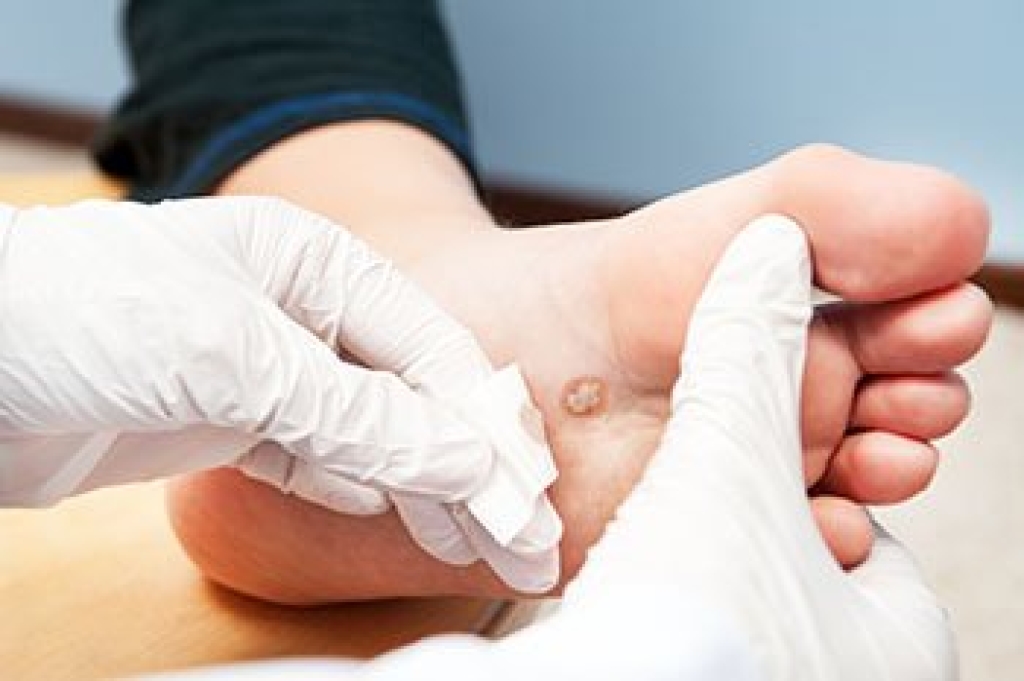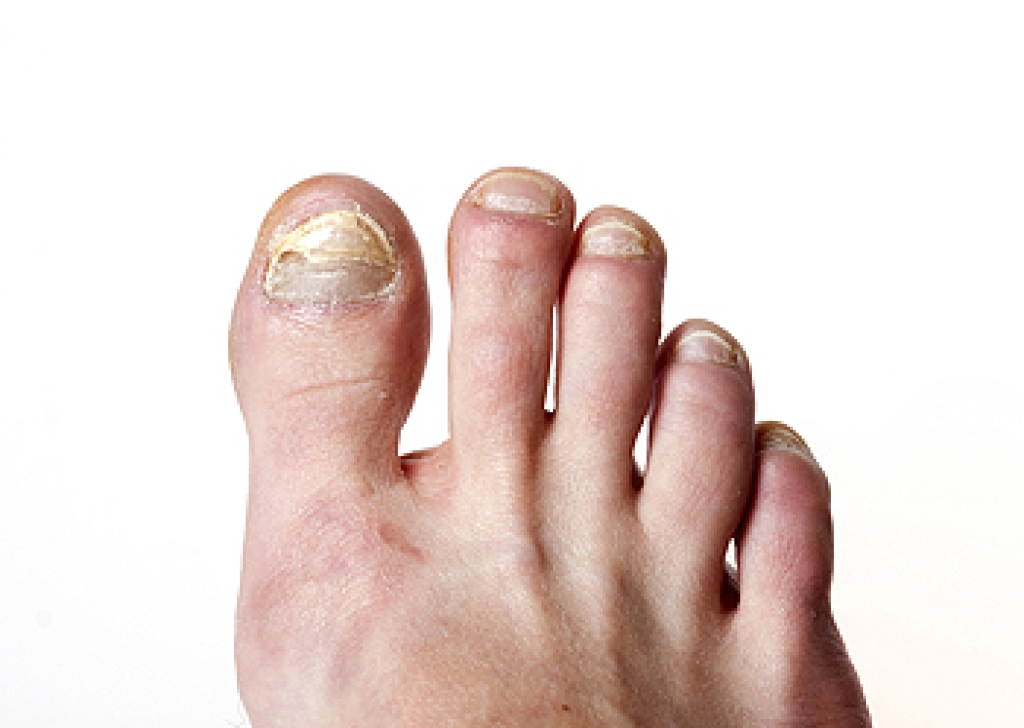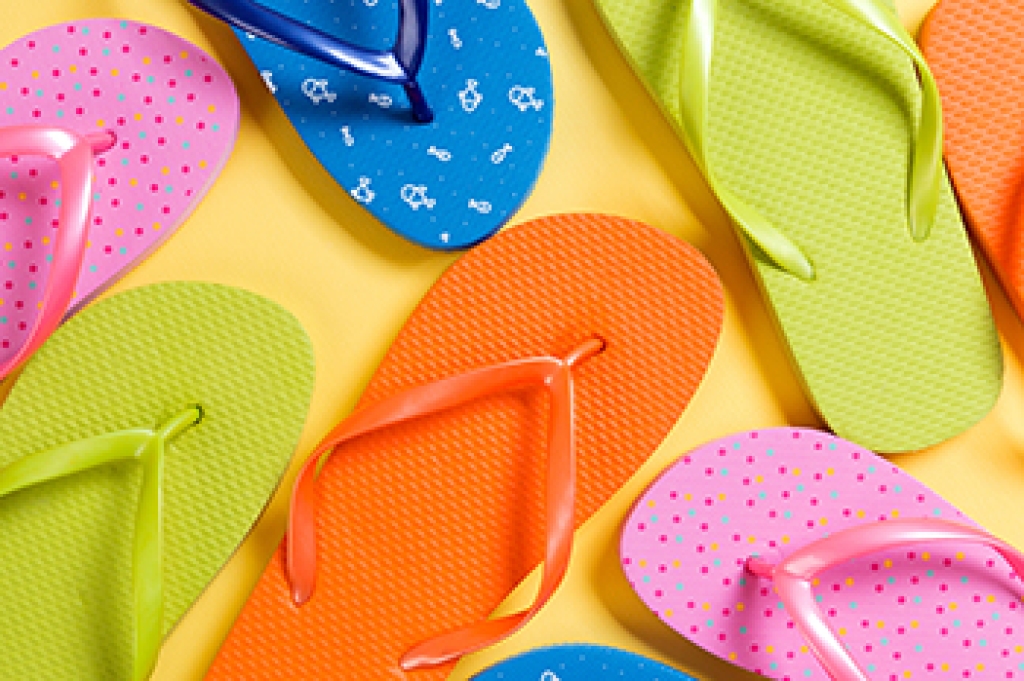Blog
Blog
What Causes the Seeds in Seed Warts?

A seed wart can result when an individual comes into direct contact with the human papillomavirus, or HPV. This skin growth can be quite unsightly and typically forms on the bottom, or sole, of the foot. They are characterized by the presence of very small black dots, known as seeds, in the center of the wart. Interestingly, these seeds are not really seeds in the traditional use of the word. Rather, these seeds are actually just tiny blood vessels that have become clotted. Therefore, although these tiny dots might look like seeds, they are in fact just blood vessels. The virus that causes seed warts is extremely contagious and can be spread by skin-to-skin contact and by other means. If you are someone that may have a seed wart, it is strongly suggested that you schedule an appointment with a podiatrist as quickly as possible who can analyze and address your foot problem.
Plantar warts can be very uncomfortable. If you need your feet checked, contact one of our podiatrists from Gerber Podiatry Clinic. Our doctors will assist you with all of your foot and ankle needs.
About Plantar Warts
Plantar warts are the result of HPV, or human papillomavirus, getting into open wounds on the feet. They are mostly found on the heels or balls of the feet.
While plantar warts are generally harmless, those experiencing excessive pain or those suffering from diabetes or a compromised immune system require immediate medical care. Plantar warts are easily diagnosed, usually through scraping off a bit of rough skin or by getting a biopsy.
Symptoms
- Lesions on the bottom of your feet, usually rough and grainy
- Hard or thick callused spots
- Wart seeds, which are small clotted blood vessels that look like little black spots
- Pain, discomfort, or tenderness of your feet when walking or standing
Treatment
- Freezing
- Electric tool removal
- Laser Treatment
- Topical Creams (prescription only)
- Over-the-counter medications
To help prevent developing plantar warts, avoid walking barefoot over abrasive surfaces that can cause cuts or wounds for HPV to get into. Avoiding direct contact with other warts, as well as not picking or rubbing existing warts, can help prevent the further spread of plantar warts. However, if you think you have developed plantar warts, speak to your podiatrist. He or she can diagnose the warts on your feet and recommend the appropriate treatment options.
If you have any questions, please feel free to contact our office located in Evanston, IL . We offer the newest diagnostic and treatment technologies for all your foot care needs.
Flat Feet Development in Children

Flat feet is an affliction in which the arches of the feet disappear or were never properly developed. As a result, the entire soles of the feet rest flush against the floor. Many new parents often wonder whether it is natural for their babies to have flat feet. They also often ask podiatrists when it is normal for their babies to develop arches in the feet. Although these answers are not ironclad and completely consistent from person to person, several rules of thumb might be gleaned. Typically speaking, newborn babies are born without foot arches. However, they commonly begin to develop by the time the child is about 3 years old. It is also important to note that young children might have either of two types of flat feet: rigid or flexible. If you are a new parent and want to make sure that your child’s feet are developing properly, it is suggested that you schedule an appointment with a podiatrist today.
Flatfoot is a condition many people suffer from. If you have flat feet, contact one of our podiatrists from Gerber Podiatry Clinic. Our doctors will treat your foot and ankle needs.
What Are Flat Feet?
Flatfoot is a condition in which the arch of the foot is depressed and the sole of the foot is almost completely in contact with the ground. About 20-30% of the population generally has flat feet because their arches never formed during growth.
Conditions & Problems:
Having flat feet makes it difficult to run or walk because of the stress placed on the ankles.
Alignment – The general alignment of your legs can be disrupted, because the ankles move inward which can cause major discomfort.
Knees – If you have complications with your knees, flat feet can be a contributor to arthritis in that area.
Symptoms
- Pain around the heel or arch area
- Trouble standing on the tip toe
- Swelling around the inside of the ankle
- Flat look to one or both feet
- Having your shoes feel uneven when worn
Treatment
If you are experiencing pain and stress on the foot you may weaken the posterior tibial tendon, which runs around the inside of the ankle.
If you have any questions, please feel free to contact our office located in Evanston, IL . We offer the newest diagnostic and treatment technologies for all your foot care needs.
Reasons Why Toenail Fungus May Develop

Onychomycosis is the medical term for the common foot condition that is known as toenail fungus. It can be an unsightly ailment and causes the toenails to become yellow and thick. In severe cases, they may become brittle and eventually separate from the nail bed and fall off. It can be caused by various reasons, which may include existing medical conditions. These can consist of diabetes, poor circulation, or a weakened immune system. Additionally, the fungus that causes this condition can live in moist environments such as public swimming pools, shower room floors, and similar areas. It is beneficial to wear appropriate shoes while going to these types of places, which may help you to avoid getting toenail fungus. One of the first signs of this condition can be a small white spot that appears on the nail of the big toe. Research has shown that treatment may be more successful when started promptly. If you have developed toenail fungus, it is suggested that you confer with a podiatrist who can discuss the correct treatment options with you.
For more information about treatment, contact one of our podiatrists of Gerber Podiatry Clinic. Our doctors can provide the care you need to keep you pain-free and on your feet.
Toenail Fungus Treatment
Toenail fungus is a condition that affects many people and can be especially hard to get rid of. Fortunately, there are several methods to go about treating and avoiding it.
Antifungals & Deterrence
Oral antifungal medicine has been shown to be effective in many cases. It is important to consult with a podiatrist to determine the proper regiment for you, or potentially explore other options.
Applying foot powder on the feet and shoes helps keep the feet free of moisture and sweat.
Sandals or open toed shoes – Wearing these will allow air movement and help keep feet dry. They also expose your feet to light, which fungus cannot tolerate. Socks with moisture wicking material also help as well.
If you have any questions please contact our office located in Evanston, IL . We offer the newest diagnostic and treatment technologies for all your foot and ankle needs.
Flip-Flop Straps

As the weather starts to get warmer, many individuals throughout the country will begin wearing flip-flops. Although this kind of footwear is fashionable for the incoming summer weather, it can also pose several health risks to your feet. Specifically, flip-flops have a retainer between the big and second toe. As a result, sometimes individuals may develop blisters or a sore in this area due to rubbing and friction. To mitigate this, an individual could consider opting for flip-flops made of fabric rather than plastic. More importantly, people should choose footwear besides flip-flops, such as a supportive pair of sandals. If you are someone that enjoys wearing flip-flops and experiences blisters between the big and second toe, it is suggested that you contact a podiatrist.
Flip-flops are not always the best choice of footwear. If you have any concerns about your feet or ankles, contact one of our podiatrists from Gerber Podiatry Clinic. Our doctors will assist you with all of your foot and ankle needs.
Flip-Flops and Feet
When the weather starts warming up, people enjoy wearing flip-flops. Flip-flops are comfortable, stylish, and easy to slip on and off; they're perfect for any summer beach goer. However, these shoes can cause harm to the feet.
How Can Flip-Flops Affect Me Long-Term?
- Ankle problems
- Hip problems
- Lower back problems
- Pain in the balls of the feet
- Problems with foot arches
- Changes in the way you walk
Are There Injuries Associated with Flip-Flops?
Yes. Since flip-flops are relatively weak and do not provide the same amount of support as sneakers, people who wear flip-flops regularly are more susceptible to injuries. On top of that, the open nature of the shoe makes your feet more prone to other problems, such as cuts and even infections. Common injuries and ailments include:
- Sprained ankles
- Blisters
- Infections
- Cuts and Scrapes
I like Wearing Flip-Flops. Are There Safe Alternatives?
When buying flip-flops, try to find ones that have sturdy soles and that are made of high-quality materials that will support for your feet. These flip-flops will cost more but will also last longer as a result.
If you have any questions, please feel free to contact our office located in Evanston, IL . We offer the newest diagnostic and treatment technologies for all your foot care needs.
Blog Archives
- 2023
- 2022
- 2021

 Like US
Like US Follow Us
Follow Us Review Us
Review Us